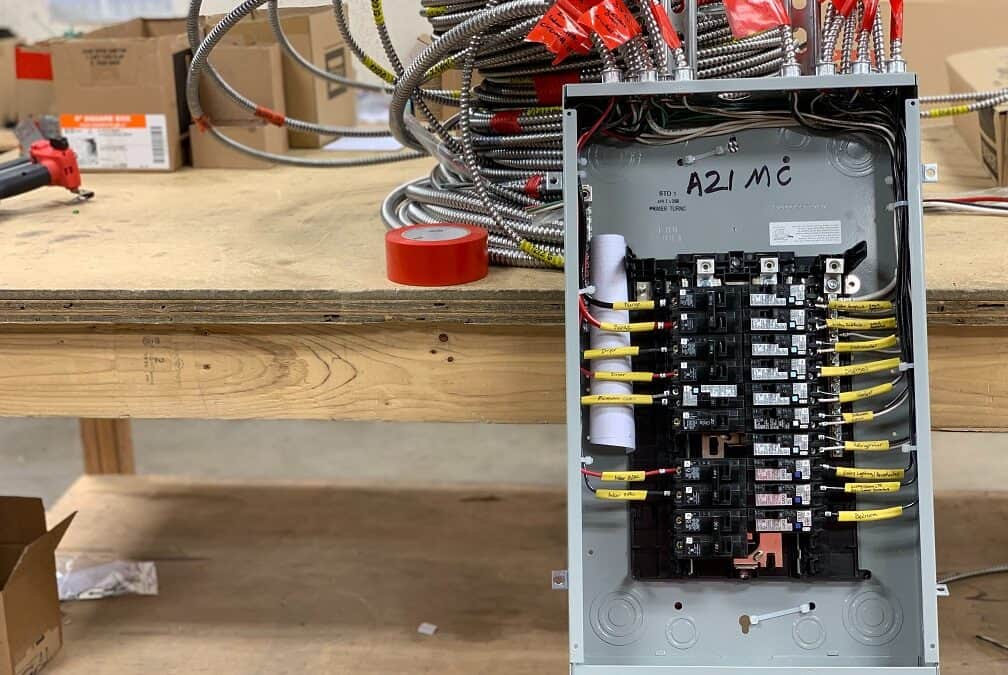Are you curious about the role of an electrical panel in your home? Look no further! In this informative article, we will delve into the significance of an electrical panel and its crucial role in powering your household. An electrical panel, also known as a fuse box, centrally distributes electricity to every part of your home, ensuring a safe and efficient electrical supply. Understanding the function and importance of an electrical panel is essential for every homeowner. So, whether you’re considering a new installation, repairs, or upgrades, knowing the ins and outs of this vital component is crucial. And when it comes to reliable and trusted electrical panel services in Vancouver WA, you can count on us to provide the expertise you need. Let’s get started and discover the wonders of the electrical panel.
The Basics of Electrical Panels
To put it simply, an electrical panel houses various electrical components. It acts as the main distribution point for electricity, receiving power from the utility company and sending it to different circuits in your home. The panel is usually installed in a dedicated area, such as a basement, garage, or utility room. It is typically equipped with a hinged door that allows access to the breakers or fuses inside.
Components of an Electrical Panel
An electric panel comprises the following parts;
Main Service Disconnect
The main service disconnect is the entry point of electrical power into your home. It is a large breaker or switch that allows you to completely cut off the electrical supply to your entire house. In case of emergencies or when performing maintenance tasks, the main service disconnect is a vital safety feature.
Circuit Breakers
Circuit breakers are devices that control how electricity flows to different circuits in your home. They are designed to protect the electrical system from overloads and short circuits. Circuit breakers have built-in sensors that automatically trip and disconnect the circuit when excessive current passes through them. This helps prevent electrical fires and equipment damage.
Fuses
Although less common in modern homes, some older electrical panels still use fuses. Fuses serve the same purpose as circuit breakers, protecting the circuits from overcurrent. When a circuit draws too much current, the fuse wire melts, breaking the circuit and preventing damage. Fuses need to be replaced when they blow, whereas circuit breakers can simply be reset.
Bus Bars
Bus bars are metal strips or bars inside the electrical panel that distribute electricity to the various circuits. They are typically made of copper or aluminum and act as conductors, connecting the main service disconnect to the circuit breakers or fuses. The bus bars play a crucial role in ensuring a steady and reliable flow of electricity throughout your home.
Importance of an Electrical Panel
Electrical panels plays a crucial role in any building. Some of their benefits include;
Safety
One of the primary functions of an electrical panel is to ensure the safety of your home’s electrical system. The circuit breakers or fuses protect against overloads and short circuits, which can cause electrical fires. By promptly disconnecting the circuit when a fault occurs, the electrical panel prevents potential hazards and reduces the risk of accidents.
Power Distribution
The electrical panel efficiently distributes electricity to different areas of your home. It divides the electrical load into separate circuits, allowing you to control and manage the power supply to various appliances, outlets, and lighting fixtures. This organization ensures that each circuit operates within its capacity, minimizing the chances of overload and improving energy efficiency.
Easy Maintenance and Troubleshooting
When an electrical issue arises, the electrical panel serves as a convenient starting point for troubleshooting. By identifying the specific circuit associated with the problem, you can isolate and address the issue more efficiently. Additionally, the panel allows for easy maintenance and upgrades, as it provides access to the breakers or fuses for testing, replacement, or expansion.
The electrical panel is a critical component of your home’s electrical system. It serves as a control center for the distribution and management of electricity, ensuring the safety and efficiency of your electrical system. Understanding its purpose and components empowers homeowners to make informed decisions about their electrical needs, such as adding new circuits or upgrading their panels. Regular maintenance and periodic inspections by a qualified electrician are essential to keep the electrical panel functioning optimally and to maintain a safe living environment. Remember, when it comes to electrical systems, safety should always be a top priority.

Recent Comments